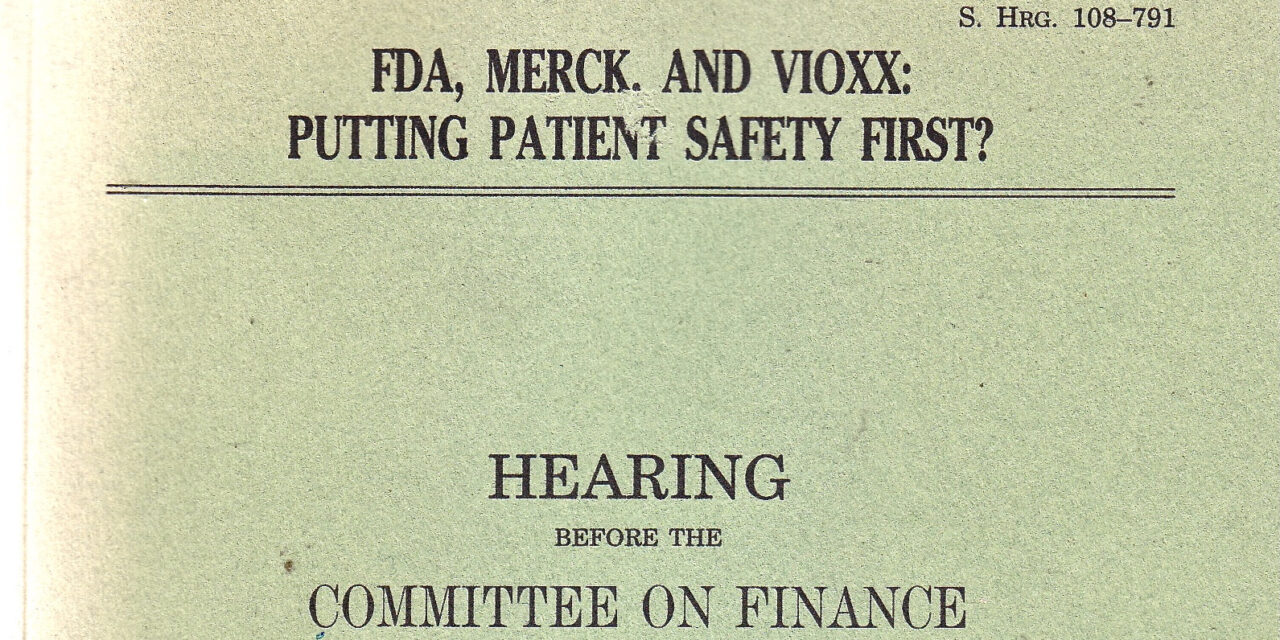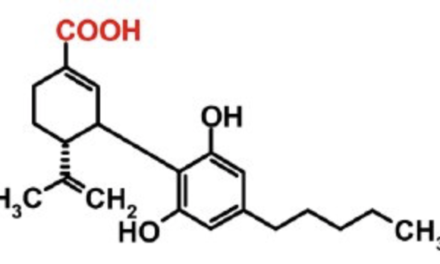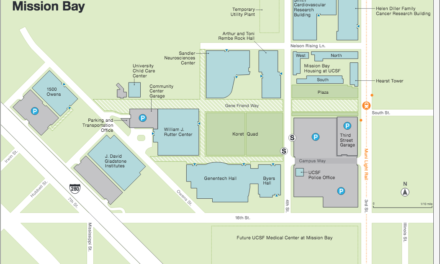By Fred Gardner
Major funding for “The Cannabis Question,” an hour-long documentary now streaming on NOVA, came from one of the Koch Brothers. Major funding for the experts featured on camera has come from the National Institute on Drug Abuse. NOVA ♥ NIDA and vice-versa.
The premise of the hour-long documentary —and its heavy unspoken message— is that only clinical trials can establish the safety and efficacy of a medicine. The experts acknowledge that the government has long impeded researchers who would study cannabis as medicine. But no one questions the infallibility of clinical trials.
The fact that physicians have tracked more than a million people in this country who have used cannabis for medical purposes is simply ignored. The Clinical Evidence contained in their files is voluminous and accessible, but it’s not NOVAworthy because it has not been certified as kosher by Capital-M Medicine.
What follows is a list of 35 drugs whose safety and efficacy were established in randomized, placebo-controlled trials to the satisfaction of the Food & Drug Administration —and later had to be withdrawn from the market when their disastrous side-effects became apparent. The list was compiled by ProCon.org in 2018. We didn’t have space to run it in the last O’Shaughnessy’s but think it warrants posting now in response to NOVA and the Koch Bros promoting the Cult of the Clinical Trial. Bear in mind that the FDA relies solely on results from clinical trials in approving drugs for US Americans to consume.
The list warrants publication for another reason, too. People are aggressively dissing those who don’t want to get vaccinated —as if they were stupid because they don’t “believe in science,” and/or they’re “fascists.” As this list of withdrawn drugs shows, there’s good reason to be suspicious of medical decisions made on our behalf by the federal government. Pot partisans know —or should know— better than anyone how wrong and how intentionally dishonest the government and Capital-M Medicine can be. If Medicine and Capital-S Science have lost the public’s trust, it’s not the public’s fault.
The FDA website explains, “A drug is usually taken off the market because of safety issues with the drug that cannot be corrected, such as when it is discovered that the drug can cause serious side effects that were not known at the time of approval.” It often turns out that a drug’s dangerous side effects were indeed known to the manufacturer at the time of approval, but were concealed from the FDA because —get this— pharmaceutical manufacturers don’t have to report the result of trials that show little or no benefit and/or recurrent adverse effects.
How unscientific can you get?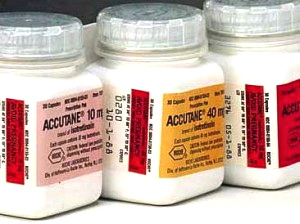 Accutane (Isotretinoin)
Accutane (Isotretinoin)
Use: Acne
Manufacturer: Hoffman-La Roche
Years on the market: 27 (1982 to 2009)
Cause for recall: increased risk of birth defects, miscarriages, and premature births when used by pregnant women; inflammatory bowel disease; suicidal tendencies
More than 7,000 lawsuits were filed against the manufacturer over the side effects including a $10.5 million verdict and two $9 million verdicts.
Baycol (Cerivastatin)
Use: Cholesterol reduction
Manufacturer: Bayer A.G.
Years on the market: three (1998-2001)
Cause for recall: rhabdomyolysis (breakdown of muscle fibers that results in myoglobin being released into the bloodstream) which led to kidney failure; 52 deaths (31 in the US) worldwide; 385 nonfatal cases with most requiring hospitalization; 12 of the deaths were related to taking this drug in combination with gemfibrozil (Lopid).
Bextra (Valdecoxib)
Use: Pain relief
Manufacturer: G.D. Searle & Co.
Years on the market: 3.3 (2001-2005)
Cause for recall: Serious cardiovascular adverse events (death, heart attack, stroke); increased risk of serious skin reactions (like toxic epidermal necrolysis, Stevens-Johnson syndrome, erythema multiforme); gastrointestinal bleeding. The FDA determined that Bextra, a non-steroidal anit-inflammatory drug, showed no advantage over other NSAID pain relievers on the market.
Cylert (Pemoline)
Use: Central nervous system stimulant to treat ADHD/ADD
Manufacturer: Abbott Laboratories
On the market for 35 years (1975-2010)
Cause for recall: liver toxicity. The FDA added a box warning to Cylert in 1999, alerting doctors and patients to the potential of liver damage.
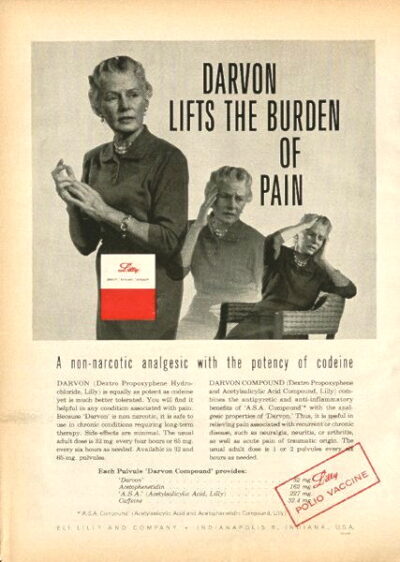 Darvon & Darvocet (Propoxyphene)
Darvon & Darvocet (Propoxyphene)
Use: Opioid pain reliever
Manufacturer: Xanodyne on
On the market 55 years (1955 to 2010)
Cause for recall: serious toxicity to the heart. Between 1981 and 1999 there were more than 2,110 deaths reported. The UK banned Darvon and Darvocet in 2005. The FDA was petitioned in 1978 and again in 2006 to ban the drug by the group Public Citizen.
DBI (Phenformin)
Use: antidiabetic
Manufacturer: Ciba-Geigy
On the market for 19 years (1959-1978)
Cause for recall: lactic acidosis (low pH in body tissues and blood and a buildup of lactate) in patients with diabetes.
DES (Diethylstibestrol)
Use: synthetic estrogen to prevent miscarriage, premature labor, and other pregnancy complications
Manufacturer: Grant Chemical Company
On the market 31 years (1940 to 1971)
Cause for recall: clear cell adenocarcinoma (cancer of the cervix and vagina), birth defects, and other developmental abnormalities in children born to women who took the drug while pregnant; increased risk of breast cancer, higher risk of death from breast cancer; risk of cancer in children of mothers taking the drug including raised risk of breast cancer after age 40; increased risk of fertility and pregnancy complications, early menopause, testicular abnormalities; potential risks for third generation children (the grandchildren of women who took the drug). Studies in the 1950s showed the drug was not effective at preventing miscarriages, premature labor, or other pregnancy complications.
Duract (Bromfenac)
Use: Pain killer
Manufacturer: Wyeth-Ayerst
On the market July 1997 through 1998
Cause for recall: 4 deaths; 8 patients requiring liver transplants; 12 patients with severe liver damage
Duract was labeled for maximum use of 10 days but patients often received/took more than 10 days worth of pills; all cases of death and liver damage involved patients taking pills for longer than 10 days.
Ergamisol (Levamisole)
Use: Worm infestation; colon and breast cancers; rheumatoid arthritis
Manufacturer: Janssen Pharmaceutica On the market for 11 years (1989-2000)
Cause for recall: neutropenia (a type of low white blood cell count), agranulocytosis (a type of low white blood cell count), and thrombotic vasculopathy (blood clots in blood vessels) which results in retiform purpura (a purple discoloration of the skin that can sometimes require reconstructive surgery) Levamisole is still used to treat animals with worm infestations in the US. It is also being found in street cocaine as an adulterant to increase euphoric qualities.
Hismanal (Astemizole)
Use: Antipsychotic
Manufacturer: Janssen Pharmaceutica On the market 11 years (1988-1999)
Cause for recall: slowed potassium channels in the heart that could cause torsade de pointes (TdP; a heart condition marked by a rotation of the heart’s electrical axis) or long QT syndrome (LQTS; prolonged QT intervals)
Lotronex (Alosetron)
Use: Irritable bowel syndrome (IBS) in women
Manufacturer: Prometheus Laboratories,
On rhe market less than a year (Feb. 9, to Nov. 28, 2000)
Cause for recall: 49 cases of ischemic colitis (inflammation and injury of the large intestine); 21 cases of severe constipation (10 requiring surgery); 5 deaths; mesenteric ischemia (inflammation and injury of the small intestine)
Lotronex was reintroduced to the US market in 2002 with restricted indication.
Meridia (Sibutramine)
Use: Appetite Suppressant
Manufacturer: Knoll Pharmaceuticals
On the market 13 years (1997 to 2010)
Cause for recall: increased cardiovascular and stroke risk. FDA reviewer Dr. David Graham listed Meridia with Crestor, Accutane, Bextra, and Serevent as drugs whose sales should be limited or stopped because of their danger to consumers in Sep. 30, 2004 testimony before a Senate committee.
Merital & Alival (Nomifensine)
Use: Antidepressant
Manufacturer: Hoechst AG (now Sanofi-Aventis)
On the market three years (1982 to 1985)
Cause for recall:
haemolytic anemia; some deaths due to immunohemolytic anemia
Micturin (Terodiline)
Use: Bladder incontinence
Manufacturer: Forest Labs
On the market two years (1989 to 1991)
Cause for recall: QT prolongation (irregular heartbeat) and potential for cardiotoxicity
Mylotarg (Gemtuzumab Ozogamicin)
Use: Acute myeloid leukemia (AML, a bone marrow cancer)
Manufacturer: Wyeth
On the market 10 years (2000-2010).
Cause for recall: increased risk of death and veno-occlusive disease (obstruction of veins).
Omniflox (Temafloxacin)
Use: Antibiotic for pneumonia, bronchitis, and other respiratory tract infections; prostatitis and other genitourinary tract infections; skin ailments.
Manufacturer: Abbot Laboratories On the market Jan. 31 to June 5, 1992
Cause for recall: three deaths; severe low blood sugar; hemolytic anemia and other blood cell abnormalities; kidney disfunction (half of the cases required renal dialysis); allergic reactions including some causing life-threatening respiratory distress.
[The true extent of the damage caused by Omniflox and the vile duplicity of Abbot execs is laid out in a great book by Stephen Fried, “Bitter Pills.”]
Palladone (Hydromorphone hydrochloride, extended-release)
Use: Narcotic painkiller
Manufacturer: Purdue Pharma
On the market January to July 13, 2005
Cause for recall: high levels of palladone could slow or stop breathing, or cause coma or death; combining the drug with alcohol use could lead to rapid release of hydromorphone, in turn leading to potentially fatally high levels of drugs in the system
Permax (Pergolide)
Manufacturer: Valeant
On the market nine years (1988-2007)
Cause for recall: valve regurgitation (a condition that causes the valves to not close tightly, which allows blood to flow backward over the valve) in the mitral, tricuspid, and aortic heart valves, which can result in shortness of breath, fatigue, and heart palpitations.
Permax is still available in the U.S. for veterinary use, specifically for pituitary pars intermedia hyperplasia or equine Cushing’s Syndrome (ECS) in horses.
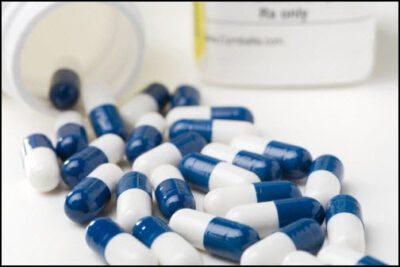 Pondimin (Fenfluramine)
Pondimin (Fenfluramine)
Use: Appetite suppressant
Manufacturer: Wyeth-Ayerst
On the market 24 years (1973 to 1997)
Cause for recall: 30% of patients prescribed the drug had abnormal echocardiograms; 33 cases of rare valvular disease in women; 66 additional reports of heart valve disease.
Pondimin is better known as “Fen-Phen” when prescribed with Phentermine.
Posicor (Mibefradil)
Use: Calcium channel blocker (used to treat hypertension)
Manufacturer: Roche Laboratories On the market 1 year (June ‘97 to June ‘98)
Cause for recall: fatal interactions with at least 25 other drugs, including common antibiotics, antihistamines, and cancer drugs) including astemizole, cisapride, terfenadine, lovastatin, and simvastatin.
Posicor was found by the FDA to offer no significant benefit over other anti-hypertensive or antianginal drugs, which made the risks of drug interactions “unreasonable.” Patients immediately switching from Posicor to another calcium channel blocker were at increased risk of going into shock within 12 hours of the drug switch.
Propulsid (Cisapride)
Use: Severe nighttime heartburn associated with gastroesophageal reflux disease (GERD)
Manufacturer: Janssen Pharmaceutical
On the market seven years (1993-1970).
Cause for recall: more than 270 cases of serious cardiac arrythmias (including ventricular tachycardia, ventricular fibrillation, torsades de pointes, and QT prolongation) reported between July 1993 and May 1999, with 70 being deaths.
Propulsid is also banned in India (2011) and available for limited use in Europe. It is still available for use in animals in the US and Canada
Quaalude (Methaqualone) Marketed as: Optimal, Sopor, Parest, Somnafac, and Bi-Phetamine T.
Use: Sedative and hypnotic.
Manufacturer: William H. Rorer Inc. & Lemmon Company
On the market for 23 years (1962 to 1985)
Cause for recall: mania; seizures; vomiting; convulsions; death.
Methaqualone was originally tested in India as a malaria treatment (it was ineffective). The drug is now a schedule 1 drug in the United States (like heroin, marijuana, and LSD).
Raplon (Rapacuronium)
Use: Non-polarizing neuromuscular blocker (used in anesthesia)
Manufacturer: Organon Inc.
On the market for two years (1999-2001)
Cause for recall: bronchospasms and unexplained deaths
Raptiva (Efalizumab)
Use: Psoriasis
Manufacturer: Genentech
On the market six years (2003 to 2009)
Cause for recall:progressive multifocal leukoencephalopathy (PML; a rare and usually fatal disease that causes inflammation or progressive damage of the white matter in multiple locations of the brain)
Raxar (Grepafloxacin)
Use: Antibiotic for bacterial infections
Manufacturer: Glaxo Wellcome
On the market two years (1997 to 1999)
Cause for recall: cardiac repolarization; QT interval prolongation; ventricular arrhythmia (torsade de pointes)
Redux (Dexfenfluramine)
Use: Appetite suppressant
Manufacturer: Wyeth-Ayerst
On the market one year 1996-’97) Cause for recall: 30% of patients prescribed the drug had abnormal echocardiograms; 33 cases of rare valvular disease in women; 66 additional reports of heart valve disease Redux is better known as “Fen-Phen” when prescribed with Phentermine.
Rezulin (Troglitazone)
Use: Antidiabetic and anti-inflammatory
Manufacturer: Parke-Davis/Warner Lambert (now Pfizer)
On the market three years 1997 to 2000
Cause for recall: at least 90 liver failures; at least 63 deaths
About 35,000 personal injury claims were filed against the manufacturer (Pfizer).
Selacryn (Tienilic acid)
Use: blood pressure
Manufacturer: SmithKline
On the market three years (1979 to 1982)
Cause for recall: hepatitis; 36 deaths; at least 500 cases of severe liver and kidney damage. Anphar Labs (which developed the drug in France and sold rights to sell in US to SmithKline) sent a report to SmithKline in Apr. 1979 (translated in May 1979 to English from French) stating Selacryn damaged livers. On Dec. 13, 1984, SmithKline Beckman plead guilty to “14 counts of failing to file reports with the drug agency of adverse reactions to Selacryn and 20 counts of falsely labeling the drug with a statement that there was no known cause-and-effect relationship between Selacryn and liver damage”
Seldane (Terfenadine)
Use: Antihistamine
Manufacturer: Hoechst Marion Roussel (now Sanofi-Aventis)
On the market 13 years (1985 to 1998)
Cause for recall: life-threatening heart problems when taken in combination with other drugs (specifically erthromycin (an antibiotic) and ketoconazole (an antifungal). Seldane was not considered an imminent threat. The FDA pulled Seldane from the market because Allegra and Allegra D were produced by the same company and were deemed safer by the FDA.
Trasylol (Aprotinin)
Use: antifibrinolytic to reduce blood loss during surgery.
Manufacturer: Bayer
On the market 15 years (1993-2008)
Cause for recall: increased chance of death, serious kidney damage, congestive heart failure, and strokes.
On Feb. 8, 2006, the FDA issued a public heath advisory to surgeons who perform heart bypasses, alerting them of possible fatal side effects.
Vioxx (Rofecoxib)
Use: NSAID (pain relief)
Manufacturer: Merck
On the market 5.3 years (May 20, 1999 to Sep. 30, 2004)
Cause for recall: increased risk of heart attack and stroke; linked to about 27,785 heart attacks or sudden cardiac deaths between May 20, 1999 and 2003.
[This downplays the devastation caused by Vioxx. See PS below.]
Xigris (Drotrecogin alfa, activated)
Use: Severe sepsis and septic shock
Manufacturer: Eli Lilly
On the market for 10 years (2001-2011)
Cause for recall: no survival benefit
Zelnorm (Tegaserod maleate)
Use: irritable bowel syndrome with constipation and chronic idiopathic constipation in women younger than 55.
Manufacturer: Novartis
On the market for 4.6 years (2002-2007)
Post Mortem re Vioxx
ProCon.org’s description of the damage wrought by Vioxx —“linked to about 27,785 heart attacks or sudden cardiac deaths between May 20, 1999 and 2003”— is an understatement, given the publication in Lancet of the FDA’s expert on the subject, David Graham, MD.
The FDA approved Vioxx after a hasty “priority review” in May, 1999, to treat osteoarthritis, acute pain, and menstrual cramps. By September 30, 2004, when Merck announced its “voluntary recall,” some 25 million Americans had received prescriptions for it. Graham’s data came from a review of 1.4 million patients’ records. It showed that using Vioxx doubled a patient’s risk of suffering a heart attack or stroke. The bottom line: some 140,000 Americans had suffered Vioxx-induced heart attacks and strokes. More than 55,000 died as a result, and many more were permanently disabled.
Some 3,000 Americans died in the attack on the World Trade Center. The deaths inflicted by Merck executives were not as sudden and dramatic, obviously, but were every bit as intentional. They had been alerted to the fact that Vioxx caused coronary damage by an early clinical trial. Their response was to exclude from future trials anyone with a history of heart trouble.
Will the real terrorists please stand up?

